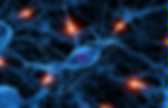

Deeper Learning Video Series (Deeper Learning) Deeper Learning 4 All. Deep and Surface Approaches to Learning | Higher Education Academy Engineering Subject Centre. Approaches to learning describe what students do when they go about learning and why they do it. The basic distinction is between a deep approach to learning, where students are aiming towards understanding, and a surface approach to learning, where they are aiming to reproduce material in a test or exam rather than actually understand it. This theory is explored further in Tool 3 of education theories on learning by Jenni Case (2008).
Introduction The concept of preferences to different individual learning styles was introduced in an accompanying document. (See learning styles). In this document we look at the associated concept of approaches to learning. The original work on approaches to learning was carried out by Marton and Saljo (1976). Deep and Surface Approaches Deep and surface approaches to learning are words that most academics will have heard. Designing for Deep Learning Perhaps the major influence on the students' approach to learning is the assessment methods. References Source. Kolb's Learning Styles and Experiential Learning Cycle.
By Saul McLeod published 2010, updated 2013 David Kolb published his learning styles model in 1984 from which he developed his learning style inventory. Kolb's experiential learning theory works on two levels: a four stage cycle of learning and four separate learning styles. Much of Kolb’s theory is concerned with the learner’s internal cognitive processes. Kolb states that learning involves the acquisition of abstract concepts that can be applied flexibly in a range of situations. In Kolb’s theory, the impetus for the development of new concepts is provided by new experiences. “Learning is the process whereby knowledge is created through the transformation of experience” (Kolb, 1984, p. 38). The Experiential Learning Cycle Kolb's experiential learning style theory is typically represented by a four stage learning cycle in which the learner 'touches all the bases': 1. 2. 3. 4.
However, effective learning only occurs when a learner is able to execute all four stages of the model. References. Helping Students Embrace Deep Learning. By Laura L. B. Border, University of Colorado at Boulder Teachers are more comfortable in the classroom when they can use multiple methods; students learn in depth when they are stretched beyond their comfort zones.
Just as a video recorder catches a teacher’s classroom behaviors on film, a learning styles inventory captures the intangible and invisible aspects of what a teacher believes (and enacts) about learning. Interestingly, there seems to be some confusion in the literature about what “learning styles” really are. Kolb describes an “experiential learning” cycle, starting with concrete experience (CE), working through reflective observation (RO), abstract conceptualization (AC), and ending with active experimentation (AE). Some writers who focus on Kolb’s work describe the “learning styles” as functions of the quadrants, that is as divergent (CE/RO), assimilating (RO/AC), convergent (AC/AE) and accommodating (AE/CE). Redefining Deep Learning Differences in Learning Styles. Deeper Learning: Hewlett Foundation. Rahil Maharaj explains that attending Impact Academy, an Envision school in Hayward, California, has given him the inspiration and confidence to work hard and apply to college.
Watch the video >> 0 To succeed in the future, students will need to know how to analyze, collaborate, and innovate. But our education system isn’t as effective at preparing them as it could be. Watch the video >> 0 “In order to prepare young people to do the jobs computers cannot do we must re-focus our education system around one objective: giving students the foundational skills in problem-solving and communication that computers don’t have.” – Frank Levy and Richard J. Murnane, “Dancing with Robots”. “I provide students with the opportunity to ask the questions, to become captains of their own learning.” All students have the right to a motivating, challenging education that will prepare them to succeed in college, careers, and life and become engaged citizens. What is deeper learning? Learn more >> Deeper Learning MOOC. How New Pedagogies Find Deep Learning.